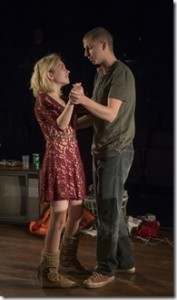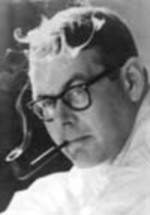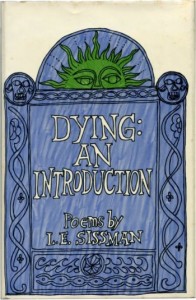In today’s Wall Street Journal drama column I review important New York revivals of plays by two major American playwrights, Kenneth Lonergan’s This Is Our Youth and A.R. Gurney’s The Wayside Motor Inn. Here’s an excerpt.
* * *
Kenneth Lonergan has finally made it to Broadway—courtesy of a trio of millennial pop-culture idols whose stage experience ranges from modest to nonexistent. Don’t let that discourage you, though: “This Is Our Youth,” Mr. Lonergan’s career-making 1996 comedy about three disaffected Manhattan kids, couldn’t be better suited to the varied abilities of Michael Cera, Kieran Culkin and Tavi Gevinson, and Anna D. Shapiro’s Steppenwolf Theatre Company production, which has transferred here from Chicago, is a highly effective revival of one of the best American plays of the past quarter-century.
 I call Mr. Lonergan’s first play a comedy because that’s what it says on the marquee. In truth, though, it’s a Chekhov-style “sad comedy” about the children of New York’s upper middle class. Warren (Mr. Cera), a clumsy, self-conscious 19-year-old, steals $15,000 from his father and brings it to Dennis (Mr. Culkin), his best friend, an arrogantly self-confident drug dealer. Dennis goads Warren into peeling off a fistful of cash and taking out Jessica (Ms. Gevinson), on whom he has what appears to be a hopeless crush. First things go well, then they don’t, and at length the two boys see one another—and themselves—in a new light.
I call Mr. Lonergan’s first play a comedy because that’s what it says on the marquee. In truth, though, it’s a Chekhov-style “sad comedy” about the children of New York’s upper middle class. Warren (Mr. Cera), a clumsy, self-conscious 19-year-old, steals $15,000 from his father and brings it to Dennis (Mr. Culkin), his best friend, an arrogantly self-confident drug dealer. Dennis goads Warren into peeling off a fistful of cash and taking out Jessica (Ms. Gevinson), on whom he has what appears to be a hopeless crush. First things go well, then they don’t, and at length the two boys see one another—and themselves—in a new light.
Mr. Lonergan uses his flawlessly tuned ear (as well as, one suspects, his memory) to bring his three youngsters to life through what they say and how they say it. Every sentence that comes out of their mouths sounds as real as a confessed humiliation: “I’m sure you love me, man, and you’re totally like my personal hero, but I really don’t get the feeling that you are.” This exactitude is of enormous help to his three actors, especially Mr. Cera, who has done very little stage acting, and Ms. Gevinson, who has done none at all. They are unformed artists playing unformed personalities, and even if some of what they’re doing in “This Is Our Youth” perhaps can’t quite be called acting, it’s wholly engrossing on its own unmediated terms…
In “The Wayside Motor Inn,” first performed in 1977, A.R. Gurney borrowed a page from Alan Ayckbourn’s playbook, writing a ten-character script whose five unrelated plot lines are all enacted on the same anonymous-looking motel-room set—only simultaneously, in the manner of Mr. Ayckbourn’s “How the Other Half Loves.” In addition, the characters pair off to illustrate different points in the life cycle of the WASP: Phil and Sally (David McElwee and Ismenia Mendes), for instance, are a college-age couple who have come to the Wayside Motor Inn for a night of illicit love, while Ray (Quincy Dunn-Baker) is a traveling salesman who aims to make time with his room-service waitress (Jenn Lyon). Lila Neugebauer, the director, contrives without visible difficulty to maintain the spatial clarity of the separate-but-equal plot lines, and every member of the ensemble cast makes a bold impression…
* * *
To read my review of This Is Our Youth, go here.
To read my review of The Wayside Motor Inn, go here.
Michael Cera, Kieran Culkin, and Tavi Gevinson talk about This Is Our Youth:

 In today’s Wall Street Journal “Sightings” column I pay tribute to the American poet L.E. Sissman. Here’s an excerpt.
In today’s Wall Street Journal “Sightings” column I pay tribute to the American poet L.E. Sissman. Here’s an excerpt. L.E. Sissman isn’t even a name to most modern-day readers, but a modest number of people can recall his brief vogue, which lasted for a bit more than a decade. Sissman, known to his friends as “Ed,” was an advertising man from Boston who in his spare time wrote poems, book reviews, and familiar essays that appeared regularly in the Atlantic and the New Yorker between 1964 and his death in 1976. He learned in 1965 that he had Hodgkin’s disease, and his first book of poems, “Dying: An Introduction,” which came out in 1968, is most striking—harrowing, in fact—when it deals with the illness that killed him at the unripe age of 48…
L.E. Sissman isn’t even a name to most modern-day readers, but a modest number of people can recall his brief vogue, which lasted for a bit more than a decade. Sissman, known to his friends as “Ed,” was an advertising man from Boston who in his spare time wrote poems, book reviews, and familiar essays that appeared regularly in the Atlantic and the New Yorker between 1964 and his death in 1976. He learned in 1965 that he had Hodgkin’s disease, and his first book of poems, “Dying: An Introduction,” which came out in 1968, is most striking—harrowing, in fact—when it deals with the illness that killed him at the unripe age of 48…